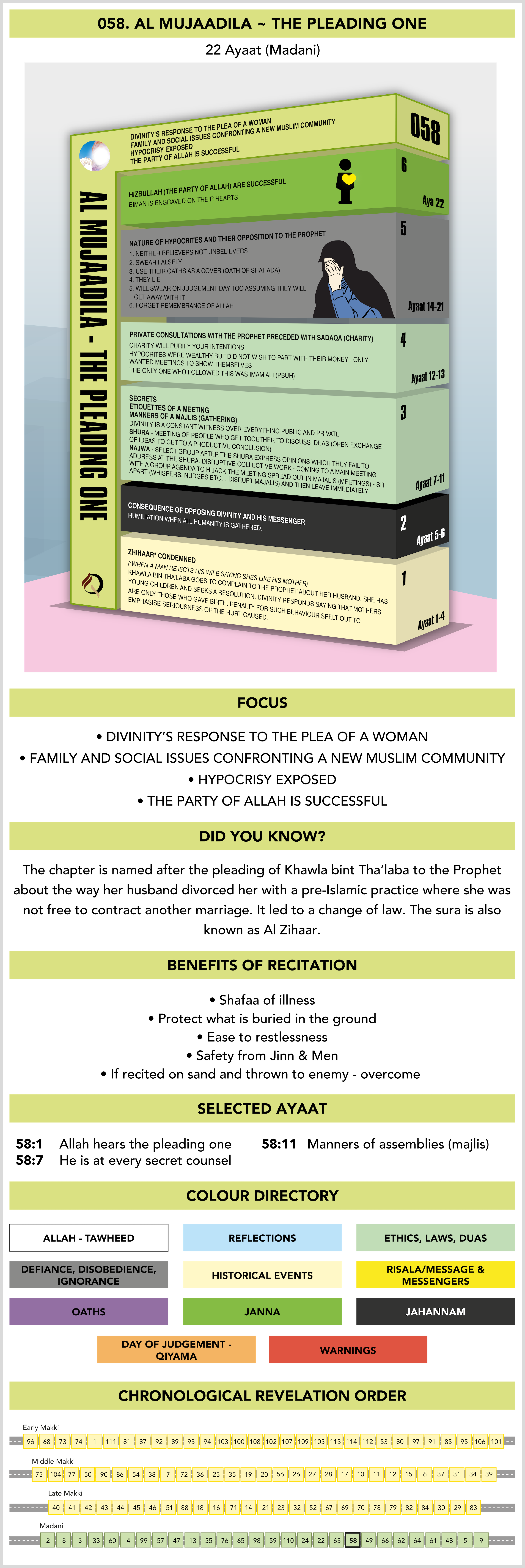It takes its name from the incident of Khawla bint Tha’laba whose husband divorced her according to pre Islamic custom of Zihaar where a man could renounce his wife simply by saying she was to him like his mother. By this the husband was free from all his responsibilities to his wife but she was not free to leave him. Khawla complained of this injustice to the Prophet and her plea was heard. Divinity revealed the revoking of Zihaar.
The sura continues from domestic matters to the secret conversations (najwa) to disrupt public meetings (Shura). The proper manner in which to hold public and private discourse follows.
A directive to give charity before conversing with the Prophet is mentioned in verse 12.
The longest section addresses the nature of the hypocrites and their opposition to the Prophet and the chapter concludes with a long verse regarding the rewards for those who believe in Allah and accountability where faith is inscribed on their hearts.


